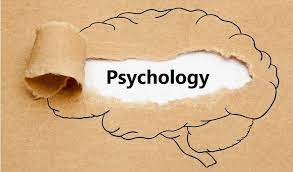What you will learn?
Successful completion of the Introduction to Psychology Exit Exam will demonstrate a comprehensive understanding of key psychological concepts, theories, and research methods.
It will provide a solid foundation for further studies or careers in psychology-related fields.
The exam outcome will showcase the students' ability to critically analyze psychological phenomena, design and conduct basic research studies, and apply psychological principles to practical situations.
About this course
The Psychology Exit Exam Practice Exam is designed to assist students in preparing for their final psychology exit exam. This practice exam provides a simulated testing environment where you can assess your knowledge and understanding of various psychology concepts, theories, and research methods. The exam covers topics such as cognitive psychology, developmental psychology, social psychology, and psychological research. By taking this practice exam, you can evaluate your preparedness, identify areas that require further study, and build confidence for the actual exit exam.
Requirements
To sit for the Introduction to Psychology Exit Exam, students must have successfully completed all the required courses and credits in the undergraduate psychology program.
Students are required to bring their student ID card and any other identification documents as specified by their institution.
FAQ
Comments (3)

Only multiple choice

Only multiple choice
Here are some of the major approaches to psychology:
Research methods in psychology are the tools and techniques that psychologists use to collect and analyze data about human behavior.
The biological bases of behavior refer to the physical structures and processes that underlie our thoughts, feelings, and behaviors.
Lifespan development is the study of how people change and grow from conception to death.
Cognitive development is the process by which children acquire the ability to think, learn, and understand the world around them.
Social and emotional development is the process by which children learn to interact with others and manage their own emotions.
Memory and learning are two of the most important cognitive functions.
Thinking and problem solving are two of the most important cognitive skills.
Language and communication are two of the most important human abilities.
Social perception is the process by which we form impressions of others.
An attitude is a mental and emotional state of readiness, organized through evaluative beliefs, that predisposes a person to respond in a consistently favorable or unfavorable manner with respect to a given object.
Group dynamics is the study of how groups function and how the individuals in a group interact with each other.
A psychological disorder is a mental health condition that significantly affects a person's thinking, feeling, mood, or behavior.
Psychological assessment is the process of gathering information about an individual's thoughts, feelings, and behaviors in order to make a diagnosis or to develop a treatment plan.
There are many different treatment approaches for mental health disorders.
Here are some of the most well-known theories of personality:
Personality assessment is the process of measuring and evaluating an individual's personality.
Applied personality psychology is a branch of psychology that focuses on the application of personality theory and research to real-world settings.
Industrial and organizational psychology (I/O psychology) is a branch of psychology that studies the workplace and the people who work in it.
Health psychology is the study of the psychological factors that influence physical health and illness.
Forensic psychology is a subfield of psychology that applies psychological principles to legal issues.



.png)






Hi Teklay W/Mariam
i am yonas you know teklay, i have received the certificate but it haven't sign please put the sign !